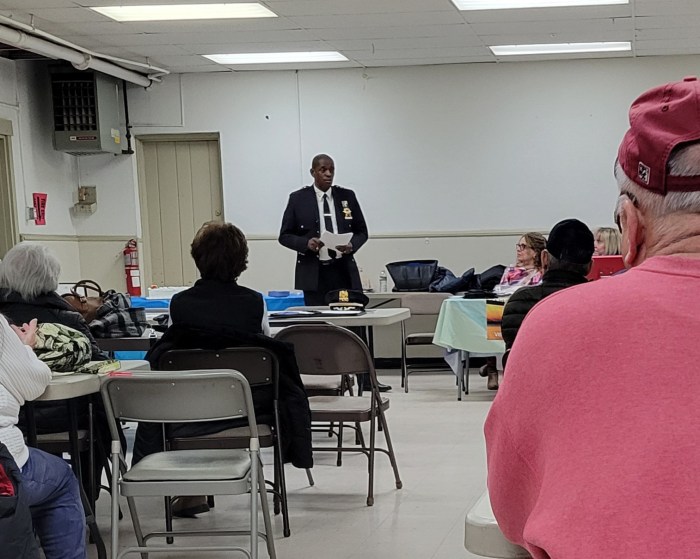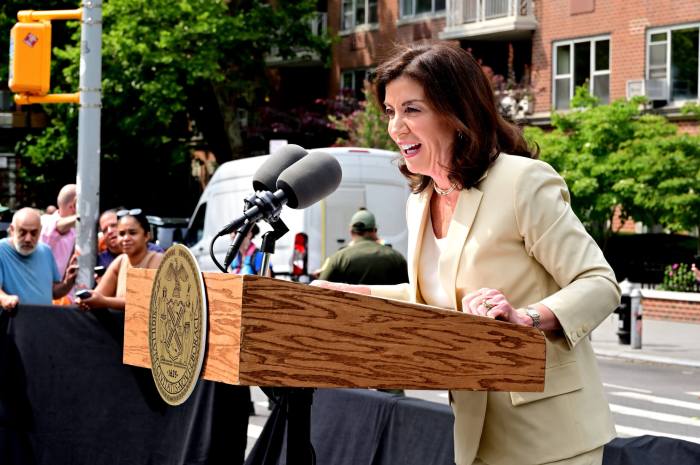
Brooklyn resident Edgardo Gonzalez has played mother hen to more than a dozen of the city’s tiniest kittens over the last several years: He gets feline furballs when they’re only three to five days old and bottle feeds them every few hours.
Gonzalez, 62, is just one of 42 volunteers with the ASPCA currently fostering 90 young cats. With "kitten season" in full swing — the population spikes when the weather gets warm — the rescue group is looking for more helping hands. While Gonzalez, who has been fostering with the ASPCA for about three years, acknowledged that it is "so much work," he added that watching their little personalities develop was worth every minute.
"They’re little muffins — little mush muffins," he said about the two kittens he is currently raising, Miney and Mo. "It’s a lot of fun. You see them going from little rats that can’t even walk to little beasts that now climb up on your bed. They will wake you up in the morning — it’s so funny to see the change in them."
Gemma Smith, the administrative manager for the ASPCA’s kitten nursery, said kitten season typically runs from April through October. Currently the nursery, which is seasonal and opened in 2014, is caring for just under 50 kittens. The facility can accommodate up to 100 of them.

"We’ve already taken in 175 kittens. All of them are under eight weeks and most are neonate kittens and need to be bottle fed every three hours," Smith said. "They’re way too young to survive on their own [and for] kittens of this population, it’s hard for them to survive in shelters."
The Animal Care Center of NYC sends the lion’s share of kittens to the ASPCA, said Smith, adding that her organization provides everything a foster parent might need — items like food and litter as well as cab fare to and from the nursery. And the group runs a training session for new foster parents, the first such online session which will be held on May 23.
"Our foster program is really growing. We’ve found they really thrive in a home environment — getting used to human smells and touches," she added. "Fostering allows underage kittens to grow up protected from diseases and excess stress they might face in a shelter. Being in a shelter could be stressful for a young animal, it’s more relaxing for them.
"It can sound like it would be a lot of work. However, kittens are really small animals — they can thrive in a bathroom," Smith added. "All of this is really preparing them to get adopted and lead their best lives as a house cat."
Roberta Lobo, 24, an investment banker in Murray Hill, recently took in five kittens: Elephant, Eggs, Ezra, Eliza and Echo. Echo was able to reach his goal weight and went off to be adopted. Lobo said she takes care of the kittens in the morning before work and her boyfriend takes over kitten duty in the evenings.
Lobo, who said she has noticed more and more kittens have been available for fostering as the weather has warmed up, added she tends to keep them in her bathroom for the first 24 to 48 hours and then lets them roam her bedroom.
"They’re just so cute, they really don’t take up that much space — they’re hardly a pound," she said. "Being able to know that you’re making a difference in so many little kittens lives … it’s hard to imagine what would happen to these cats if there weren’t people available to foster."
Janet Jacobson, 74, started fostering kittens after two of her older cats died. She estimated she has looked after about 60 kittens in the past four years.
"One time I got one batch of kittens and I turned them in when they reached about two pounds and then I got another batch of kittens … and then I got another batch of kittens," Jacobson said. "You get them when they’re starting to become active and playful and ‘kittenish.’ It’s a lot of fun to see their development — I’ve had kittens as young as three days old, they’re just little blobs, little sausages."
Jacobson said she tends to foster kittens who have mothers to feed and take care of their babies, or Queens. Smith from ASPCA joked that Jacobson is called "the Queen of Queens."
"When the little ones start playing then you know they’re about ready to go. They start running around and chasing each other," Jacobson said. "I like to give animals a good chance … They feel secure and they get a good start in life with us."

































